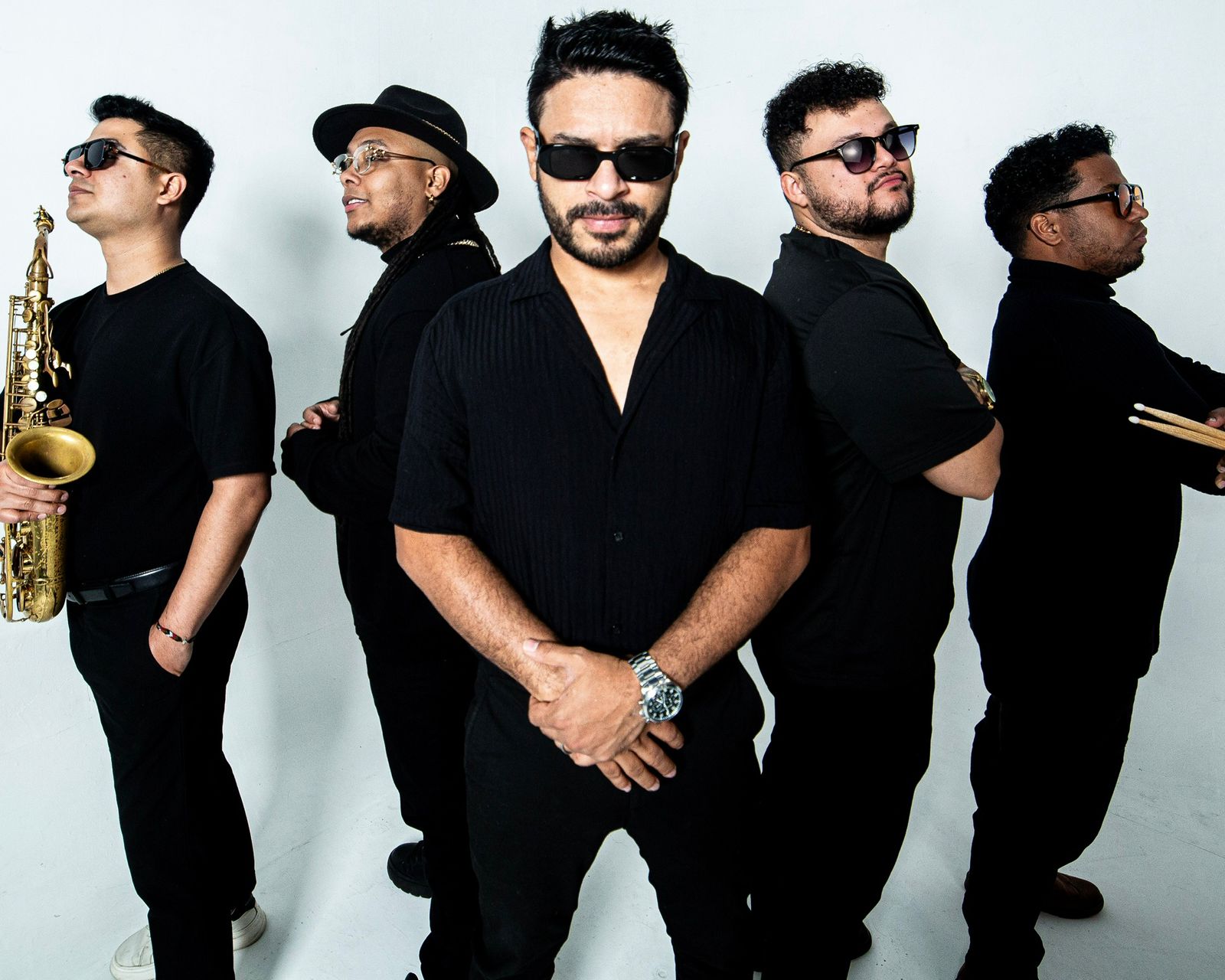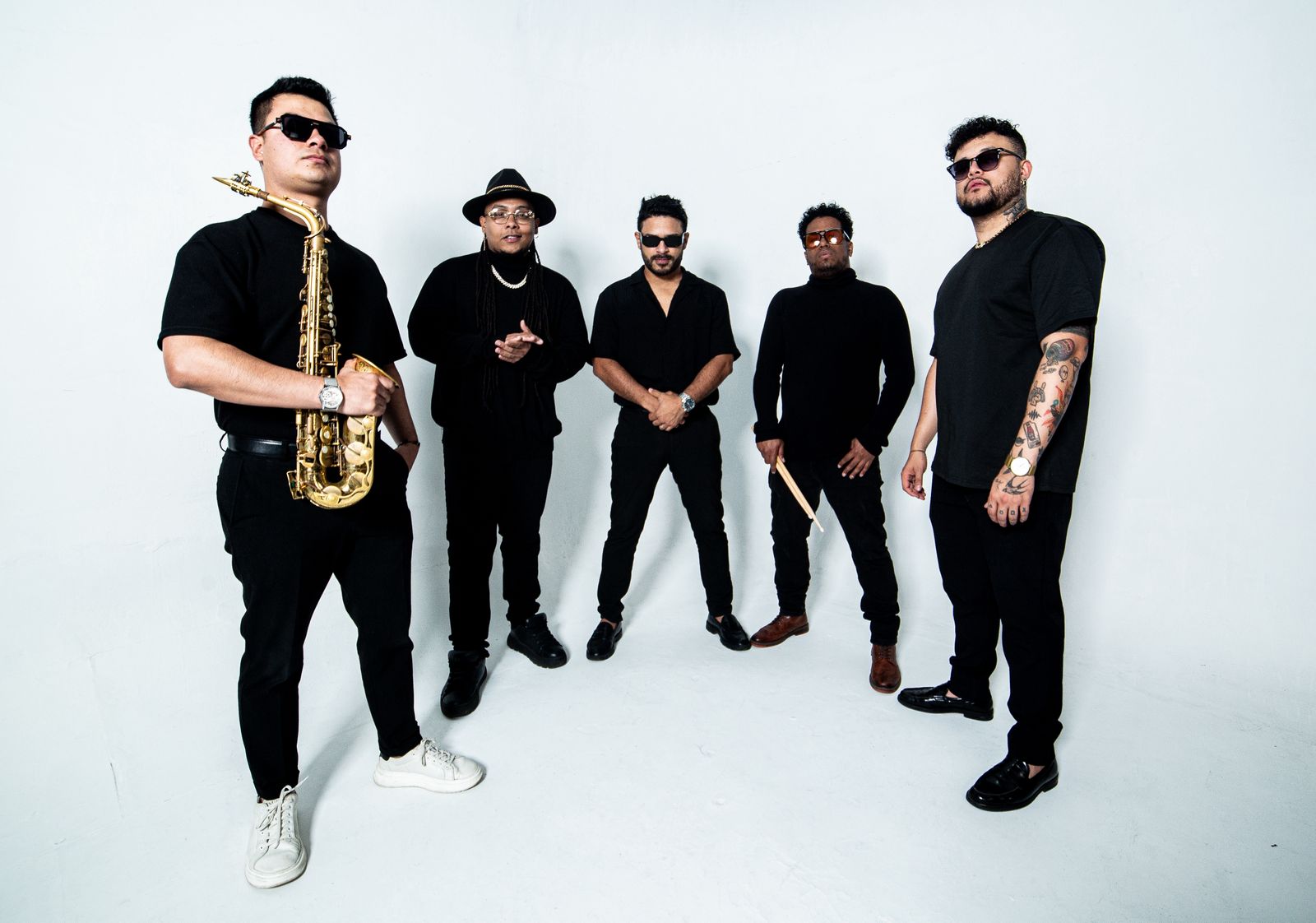Why do people no longer endure a song for more than a minute at a party? The DJ who dares to break with musical overstimulation.

Víctor Howard is a DJ with more than 20 years of experience, representing Colombia at the Tomorrowland Academy , and creator of The Howard Project , an artistic vision with which he covers anthems to sing at the top of your lungs with a unique musical experience.
Born in Cartagena, Víctor navigated many paths before the musical. He went from studying business administration at La Heroica to radio and television production and direction in the capital.
“ When I arrived in Bogotá, I started looking for all sorts of jobs. I sold cell phone plans, worked in a butcher shop, and ended up as a bouncer in a nightclub ,” Howard recalls, aware that life itself led him to accept what he was born to do.
“Because of my Christian faith, I didn't see being a DJ in a positive light, because I associated it with a heavy atmosphere,” the musician says, recalling that it was a stroke of fate that led him to take charge of a DJ console and that, day after day, it proves to him that the artist really sets the mood.

With a mix of live instruments, the musical experience combines classic musicals. Photo: Víctor Howard
How would you describe your first connection with music?
I have to be grateful for the fact that I was born in Cartagena, because its musical richness is reflected in me. I grew up in working-class neighborhoods, where musical culture was very present, with the famous picós, which are nothing more than a sound system that people have in their homes and take out to the street to blast music. And during my childhood, all I heard was pure salsa. I think that's where I began to nourish myself musically, from Joe (Arroyo), from African music, but also from disco.
What do you mean by an uncle of yours being a DJ?
(Laughs). Yes, we always lived together in the family home, and I have memories from the 10 years I was immersed in vinyl, freestyle, scratching, and the whole world of records. He played in clubs in Bogotá, and one day, as I was the bouncer there, I had to finish the set due to force majeure, being the only person who knew his music, because the art of DJing requires musical knowledge and sensitivity.
Growing up, all I could hear was salsa. I think that's where I began to draw on music, from Joe (Arroyo), African music, but also from disco.
I finished the set and, coincidentally, there was someone in the audience who was about to open a new venue and needed a young DJ who could fit his limited budget. Well, I said yes, and that's where I started. That was in 2009, and to this day I haven't stopped playing for a single second.
Why should DJing be considered a profession?
I'm in love with the art of playing and consider it a profession because, like an engineer or a doctor, a DJ must train and apply their knowledge to evolve daily in what they offer to the public.
What is your project, The Howard Project, about?
It's focused on electronic music, like disco house, and what I do is take Latin and Caribbean rhythms and mix them with disco and house music. All of this with a production that combines instruments like the saxophone, violins, and lots of percussion. Added to this are the vocals of two singers, one very melodic and the other more urban and exploring freestyle.
How are you doing playing live?
I love challenges, and that's why I didn't limit myself to just playing the console. For the live performance, I took songs from artists like Carlos Vives, Juan Luis Guerra, and even Bacilos—it's a very broad range—and I cover them so the musicians create a unique product that people enjoy. So, people sing "My First Million," but it's mixed with Latin rhythms, cumbia, salsa, but also with a house and freestyle that really takes the energy to another level.

Funk and disco combine with Caribbean sounds. Photo: Victor Howard
What is your new challenge?
I'm currently working on releasing my first original songs and getting the world to know me for my music. I'm in that transition from being a DJ to being an artist.
What was the experience of being part of the Tomorrowland Academy?
It's one of the most magical things that's ever happened to me. They held a contest in which DJs sent in videos showcasing their skills, and the prize was to study at the Tomorrowland Academy and also play at the festival. Ultimately, I came in second, so I was able to study, but not play. It was something that hit me really hard because I thought I presented something that wasn't aligned with what they were looking for. I decided to mix several genres when Tomorrowland is a festival specializing in electronic music. That's where the lesson of doing things the best way possible came from. And that's what hurt me, but right now I'm very happy about it.
Now I'm working on releasing my first original songs and letting the world know me for my music.
What's hot musically in live experiences?
I feel like the same audience is demanding musical overstimulation from the DJ, with a maximum of two minutes per song, in which there must be almost a beginning, middle, and end. And that means that in five minutes I'm listening to a remix of five or six songs, when, for example, in the 1990s or at the beginning of the century, a single merengue could last up to seven minutes.
Why do you think that happens?
I attribute this to social media and streaming platforms like Spotify and YouTube, where hits and fast-paced songs reign supreme. What I always try to do is play with mixes that allow people to enjoy the song without thinking about what's next. My personal challenge is to get people to enjoy four minutes of the same song.
Is the same thing happening in the electronic scene?
No. I think with so many festivals and niche venues, the opposite is happening. I feel like people and audiences who like electronic music enjoy the essence of the song and can stay for more than 10 minutes. I think the scene is going through a very good moment.
I feel that the same audience is demanding musical overstimulation from the DJ, with a maximum of two minutes per song in which there has to be almost a beginning, middle, and end.
What song do you feel represents you?
One More Time by Daft Punk. Since I was a kid, when I heard this song, I remember that what caught my attention most was the animated video, and ever since then, it's been one of my favorite songs. The best part is that it's a hit, never goes out of style, and is enjoyed by all generations. Plus, it was made with sampled sounds from 1970s disco music. If I could choose a second song, it would be Gimme! Gimme! Gimme! by Abba.
Where can you hear him play live?
I'm currently working in two locations: in Monaco, Bogotá, and another location called Capote. You can also find me on my social media channels @djvictorhoward on Instagram.
eltiempo

%3Aformat(jpg)%3Aquality(99)%3Awatermark(f.elconfidencial.com%2Ffile%2Fbae%2Feea%2Ffde%2Fbaeeeafde1b3229287b0c008f7602058.png%2C0%2C275%2C1)%2Ff.elconfidencial.com%2Foriginal%2F26e%2F7bd%2Fd37%2F26e7bdd37269e6439b3d1760e8ca5901.jpg&w=3840&q=100)



